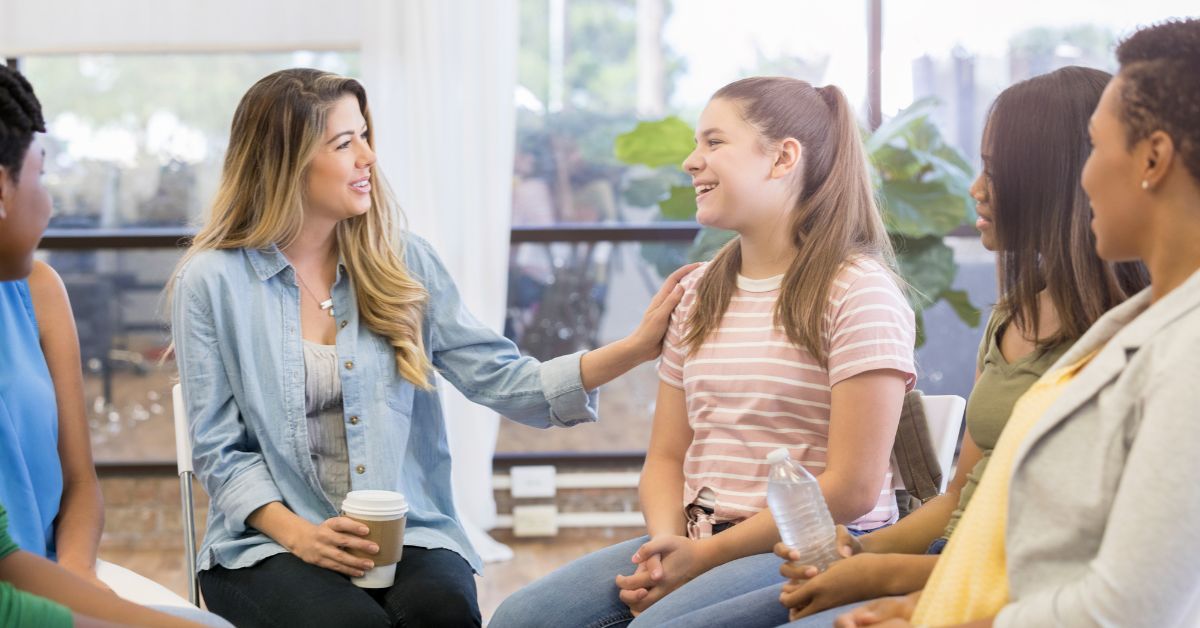Have you ever wondered if a shattered vase could be restored to its former glory? Could the cracks and scattered fragments come together to recreate the once-admired beauty? This analogy may seem dramatic, but it accurately reflects the struggle to repair relationships broken by addiction.
We can recover beloved relationships broken by addiction. It takes making intelligent decisions and compromising to help on the path to sobriety. Overcoming everything in our way is a product of resilience and love toward your loved one.
The recovery journey can be difficult, but talking with your addicted loved one again is worth the struggle. Join me on this exploration to find hope, foster healing, and reignite connection. Be prepared to change anything in your past and learn from difficult times.
Understanding Substance Abuse and Its Impact
Substance abuse involves the harmful use of drugs and alcohol. It can lead to dependence through repetitive cognitive, behavioral, and physiological symptoms. Coping with addiction is an incredibly difficult struggle that can consume a person’s existence. It’s a tough journey that can affect one’s connections.
Struggling with substance abuse can be a challenging and overwhelming experience, especially when family roles come into play. It’s important to understand that substance abuse is not just a simple case of misusing drugs or alcohol. It’s a severe illness that affects not only the body and mind but also relationships and overall quality of life.
Embracing Addiction Treatment

Even though recovery is a process full of complexities, it’s possible to overcome addiction with professional guidance and personal commitment.
The Role of Professional Intervention in Recovery
- Specialized Knowledge and Skills: Mental health professionals offer a personalized intervention grounded in research designed to support individuals on their journey towards recovery.
- Safe, Structured Environment: Rehabilitation centers offer a well-organized environment where people find a supportive community and participate in therapeutic activities, making recovery less intimidating.
- Objective Perspective: Professional opinion can help you identify and overcome cognitive distortions, exaggerated self-images, and denial in an unbiased way.
The Importance of Personal Effort
- Acceptance: Recognizing the need for change is a crucial step towards a transformation only individuals can take.
- Commitment: To fully commit to recovery or detoxing from drugs at home is to go from being a passive patient to an active participant in the healing process, which can accelerate progress.
- Implementation: Consistent use of coping strategies is essential for an effective recovery, and actively engaging with them can lead to better treatment outcomes.
Working alongside a professional and staying committed to recovery can be a powerful combination to overcome addiction. Your sacrifice will be repaid with a brighter future for your loved one.
GET: The 3 things that actually "allowed" me to help my son (and regain control again)
Consequences of Addiction on Close Friends and Family
The impact of addiction on social relationships is significant, as family and friends are usually by the addict’s side. But what specifically does addiction do to the central aspects of relationships? The consequences vary from lack of trust to poor communication.
Eroding Trust
- Skewed Sense of Reliability: Individuals succumbing to addiction become increasingly unpredictable, failing to keep commitments and uphold responsibilities. This inconsistent behavior erodes trust, making their words hard to believe.
- Betrayal: Sometimes, addicts blame others or lie to conceal their problems or obtain their substance of choice. Such behaviors can feel like a betrayal, further breaking the trust.
Distorted Communication
- Increasing Secrecy: In an attempt to hide their substance abuse, individuals may become increasingly secretive, causing communication lines to thin and fray.
- Heightened Conflicts: Addiction can increase tension and lead to frequent conflicts, drastically altering once comfortable communication dynamics.
Reduced Empathy
- Disconnecting from Emotional Reality: Emotional numbness or abnormal reactions impair the ability of individuals to empathize with their loved one’s feelings and concerns.
- Self-absorption: The obsessive preoccupation with the addictive substance can make individuals less attentive to others’ needs and emotions, reducing their capacity for empathy.
These challenges can be tough, but please keep hope. With dedication, expert guidance, and practical approaches, it’s possible to overcome unhealthy habits, repair any harm, and rebuild the crucial building blocks of your relationships.
Making Amends: A Key Step in the Recovery Process

Repairing a strained relationship with a family member is an emotive process, where it takes more than just saying sorry to help an alcoholic child. It involves acknowledging past mistakes, feeling genuine remorse for any hurt caused, and making a serious commitment to heal the damage that has been done.
In this context, what exactly does “making amends” mean and why is it such a vital aspect? Let’s delve into the deep significance of this step in recovery and understand how to approach it with sensitivity and kindness.
What Does it Mean?
- Beyond Apologies: Taking the initiative to fix things goes far beyond saying sorry. It’s about acknowledging the harm caused, accepting responsibility, and showing genuine remorse.
- Active Resolution: Having a fresh start is a dynamic process. It’s about taking active measures to correct past mistakes and prevent their recurrence.
The Steps to Start Rebuilding a Relationship
Although repairing relationships during recovery can be a profoundly individual process, some general steps can serve as a starting point for you and your loved one:
- Reflection: Reflect on past actions and how they may have affected others. It’s important to acknowledge any mistakes made.
- Understanding: Work towards understanding the pain others may have experienced due to your actions. Developing empathy is crucial.
- Apology: Express sincere remorse for what has happened as a way to apologize.
- Reparation: Look for ways to compensate for any harm caused, whether restoring the relationship or making amends for specific wrongs.
- Change: Commit to changing the behavior that caused hurt. Not only should you apologize for the past, but you should also strive for a better future.
Remember that repairing relationships takes time and effort but is worth it. Restored trust, healed relationships, and personal growth are just some benefits of being clean and sober.
WATCH: Free, confidential workshop that explains how to "Love Another Way"
Tips for Repairing Relationships
Reconnecting with those closest to us can be like solving a complex puzzle, but it’s a challenge we can overcome. We must learn new ways of communicating and establish healthy emotional boundaries. We can piece it back together with time and patience. Remember to be kind to yourself and take things one step at a time.
Cultivating Patience
- Recognize Time is Necessary: Healing is not an overnight process. Acknowledge that reestablishing trust and rebuilding relationships will require time.
- Avoid Rushing Others: Give others the space to heal and trust at their own pace. Rushing them will result in additional pressure and potential setbacks.
Emphasizing Communication
- Open Dialogues: Start honest conversations with your loved ones. You can discuss shared interests or daily situations. The goal is to build healthy communication and trust.
- Listen Actively: Be prepared to listen to their thoughts and feelings. Sometimes, they need to vent, and being an attentive listener can contribute to healing the relationship.
Setting Healthy Boundaries
- Define Boundaries: Create clear and healthy limits that respect both your needs and those of your loved ones.
- Maintain Boundaries: Continually respecting these limits demonstrates reliability and commitment to recovery.
Seeking Professional Assistance
- Leverage Support Groups: Support groups are specifically designed to support families struggling with addiction. They provide company, guidance and resources that can aid in the recovery process.
- Go to Family Therapy: Structured therapy sessions can provide a safe space for open communication, professional mediation, and developing coping strategies.
Reconnecting with others can be difficult, but focusing on the safe space ahead is important. Remember, it’s not about the challenges that have arisen but about how you deal with them. With perseverance and determination, your loved one can mend relationships and continue on the path to recovery.
Emphasizing Purposeful Relationships

Just as a plant requires sunshine, water, and tender loving care to flourish, we also need these essential elements to grow as individuals, especially during recovery. Also, building empathetic relationships with our loved ones during this time is crucial. These connections serve as our guiding light, nourishment, and support system, which help us grow and steer clear of relapse.
Think of someone’s recovery as a garden that flourishes when it receives enough sunshine, water, and nurturing care. Similarly, during drug and alcohol rehabilitation, your loved one’s inner gardens thrive when they have healthy relationships to nurture them. These relationships are not just social norms but rather profound sources of support and growth to overcome past behaviors.
Reconnecting with Loved Ones
- Initial Contact: Your loved one can start with a simple call or message. Let them acknowledge the past, communicate their commitment to recovery, and express their aspiration to reconnect.
- Earnest Apologies: They can make sincere amends for past mistakes. Remember that this might be a recurring point throughout this journey.
- Consistency: They should maintain contact and up-front communication. Genuine and consistent efforts are essential for regaining trust.
Seeking New, Positive Relationships
- Support Groups: Joining support groups or recovery meetings can be a rich source of constructive relationships. These groups offer empathy, shared experiences, and mutual support.
- Volunteering: Motivating your loved one to engage in volunteer activities nurtures a sense of purpose. It can also be a source of new relationships beyond addiction and recovery.
- Hobbies and Interests: Persuading them to pursue hobbies, interests, or physical activities can assist in building a balanced social life.
NEW: How to make the shift from "Mom Code" to prioritizing your own well-being
Nurturing Their Self-Esteem
- Self-Love and Care: Encourage your loved one to be gentle with themselves during this process, acknowledge their efforts, and celebrate small victories. This not only boosts their self-esteem but also strengthens their resilience.
- Personal Development: Motivate them to learn and grow. Reading, counseling, or therapeutic activities like yoga or mindfulness can be helpful.
Recovering from difficult times is a challenging path. Still, when we have meaningful relationships to hold onto, it can make all the difference. These connections don’t just enrich our own lives, but they also spread their positive influence onto those around us.
As your loved one builds and nurtures these relationships, make sure they prioritize the most important one, the relationship with themselves. It’s the foundation upon which all other connections can flourish. Self-care will only strengthen their bonds with others.
A Journey to Recover Personal Relationships

Rebuilding relationships during recovery can be a complex and uncertain journey. Wondering if an addicted person will ever love you again can be tough. It’s normal to feel insecure, but it’s important to remember that negative emotions won’t help you make progress.
Recovery involves seeking professional help, actively participating, and continuously redirecting toward the path of sobriety. Despite the difficulties, this journey can be empowering, and freeing your loved one from addiction to pursue healthier relationships and personal growth is a necessary change.
Frequently Asked Questions About Rebuilding Relationships After Addiction
What are relationship-building skills in recovery?
Relationship-building skills in recovery are a series of interpersonal abilities to restore and foster relationships impacted by addiction. These may consist of demonstrating consistent reliability, healthily expressing emotions, listening with empathy, communicating honestly, and respecting boundaries.
What is the importance of relationships during recovery?
The people who care for and support your loved one during recovery are crucial. Those healthy relationships provide emotional support, a safety net, and a sense of belonging. They can also help motivate your loved one to stay committed to recovery. When these bonds are built on empathy, understanding, and mutual respect, they can be incredibly powerful in preventing relapses.
SEE: Find out why your boundaries keep getting crossed (and how to reinforce them)
How do you rebuild relationships in recovery?
To repair relationships during addiction recovery, start sincerely and express regret for past actions. Making amends can help rebuild trust. Encourage open communication by listening to the feelings of others. Establishing healthy boundaries that prioritize your recovery while respecting others is critical.
What are unhealthy relationships during recovery?
The term “unhealthy relationships” refers to connections that could put someone’s progress at risk. This may include friendships involving substance use or relationships characterized by negativity, toxicity, or a lack of mutual respect and support. Codependency is another form of an unhealthy relationship, where one person heavily relies on the other for emotional support, resulting in a cycle that hinders emotional growth and recovery.
